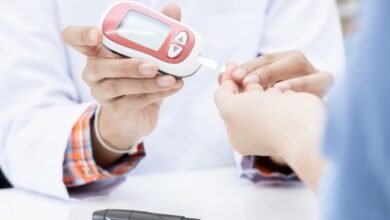9 Best Therapies Used in Drug Rehab Programs

Drug rehab programs are designed to help individuals overcome addiction and achieve long-term recovery. These programs utilize a variety of therapies to address the physical, psychological, and emotional aspects of addiction. In this article, we will explore the 9 best therapies used in drug rehab programs and their benefits in facilitating the recovery process.
Read More: Fitness & Diet During Treatment at Drug Rehab
Cognitive Behavioral Therapy (CBT)
Cognitive Behavioral Therapy (CBT) is a widely recognized and effective form of therapy used in drug rehab programs. It focuses on identifying and changing negative thought patterns and behaviors associated with substance abuse. By challenging irrational beliefs and teaching coping skills, CBT helps individuals develop healthier attitudes towards drugs or alcohol.
The benefits of CBT in drug rehab include:
- Increased self-awareness and understanding of triggers.
- Development of effective strategies to resist cravings.
- Enhanced problem-solving and decision-making skills.
- Improved emotional regulation and stress management.
Motivational Interviewing (MI)
Motivational Interviewing (MI) is a client-centered therapy that aims to enhance motivation and commitment to change. It involves a collaborative and empathetic approach, where therapists help individuals explore and resolve their ambivalence towards substance use. MI focuses on strengthening intrinsic motivation, self-efficacy, and personal values.
The benefits of MI in drug rehab include:
- Increased readiness to change and commitment to recovery.
- Improved communication and rapport between therapists and clients.
- Enhanced self-confidence and belief in the ability to overcome addiction.
Exploration of personal values and long-term goals for a meaningful life.
Contingency Management (CM)
Contingency Management (CM) is a behavioral therapy that uses positive reinforcement to encourage and reward sobriety. Through a system of incentives, such as vouchers or privileges, CM reinforces drug-free behaviors and discourages substance abuse. This therapy is particularly effective in motivating individuals to stay clean and adhere to their recovery goals.
The benefits of CM in drug rehab include:
- Increased motivation to abstain from drugs or alcohol.
- Reinforcement of positive behaviors and milestones in recovery.
- Reduction in cravings and substance abuse.
- Improved engagement and retention in treatment programs.
Dialectical Behavior Therapy (DBT)
Dialectical Behavior Therapy (DBT) is a specialized form of therapy that combines elements of cognitive-behavioral techniques with concepts from mindfulness and acceptance-based approaches. It is highly effective in treating individuals with co-occurring substance abuse and mental health disorders. DBT helps individuals develop skills for emotional regulation, distress tolerance, interpersonal effectiveness, and mindfulness.
The benefits of DBT in drug rehab include:
- Improved emotional stability and regulation.
- Enhanced coping mechanisms for dealing with stress and triggers.
- Increased interpersonal effectiveness and healthier relationships.
- Greater self-acceptance and mindfulness in daily life.
Group Therapy

Group therapy is a valuable component of drug rehab programs as it provides individuals with a supportive and empathetic environment. In group therapy sessions, participants can share their experiences, challenges, and successes with others who have faced similar struggles. It offers a sense of community and fosters a strong support network among individuals in recovery.
The benefits of group therapy in drug rehab include:
- Peer support and a sense of belonging.
- Validation of experiences and emotions.
- Learning from the experiences and insights of others.
- Development of interpersonal and communication skills.
Family Therapy
Family therapy plays a crucial role in addressing addiction, as it involves the participation of family members or close loved ones. It focuses on improving communication, resolving conflicts, and rebuilding trust within the family system. Family therapy not only supports the individual in recovery but also helps the family members understand addiction as a disease and learn how to provide effective support.
The benefits of family therapy in drug rehab include:
- Healing and strengthening of family relationships.
- Development of healthy boundaries and effective communication.
- Increased understanding of the impact of addiction on the family.
- Support for the individual’s recovery journey within a supportive family environment.
Art Therapy
Art therapy is a creative approach used in drug rehab programs to help individuals express and explore their emotions, experiences, and challenges in a non-verbal manner. Through various artistic mediums, such as painting, drawing, or sculpture, individuals can tap into their inner thoughts and feelings, promoting self-reflection and personal growth.
The benefits of art therapy in drug rehab include:
- Enhanced self-expression and communication of emotions.
- Reduction in stress and anxiety through creative outlets.
- Exploration of personal identity and self-discovery.
- Increased self-esteem and empowerment through the artistic process.
Equine-Assisted Therapy
Equine-Assisted Therapy involves interactions with horses to facilitate emotional growth and healing. Horses are highly intuitive animals, and their non-judgmental nature creates a safe space for individuals in recovery to develop trust, emotional awareness, and empathy. Equine-assisted therapy can help individuals improve their self-confidence, emotional regulation, and interpersonal skills.
The benefits of equine-assisted therapy in drug rehab include:
-
- Development of trust, empathy, and communication skills.
- Increased emotional awareness and self-reflection.
- Improved self-esteem and confidence.
Opportunities for personal growth and overcoming challenges
Mindfulness-Based Stress Reduction (MBSR)
Mindfulness-Based Stress Reduction (MBSR) is a therapeutic approach that incorporates mindfulness meditation and other mindfulness practices to reduce stress and promote overall well-being. In the context of drug rehab programs, MBSR helps individuals cultivate awareness of their thoughts, emotions, and physical sensations without judgment. It encourages acceptance and a non-reactive mindset towards cravings and triggers.
The benefits of MBSR in drug rehab include:
- Improved self-awareness and ability to observe cravings without acting on them.
- Enhanced stress management and resilience.
- Increased emotional regulation and decreased impulsivity.
- Greater overall well-being and quality of life.
Conclusion
In drug rehab programs, a combination of various therapies is often employed to address the complex nature of addiction and promote lasting recovery. The nine therapies discussed in this article—Cognitive Behavioral Therapy, Motivational Interviewing, Contingency Management, Dialectical Behavior Therapy, Group Therapy, Family Therapy, Art Therapy, Equine-Assisted Therapy, and Mindfulness-Based Stress Reduction—have proven to be highly effective in helping individuals overcome addiction and achieve long-term sobriety.
By incorporating these therapies into comprehensive treatment plans, individuals can gain valuable tools and skills to address underlying issues, manage cravings, build a support network, and develop a strong foundation for a healthier and more fulfilling life.
Read More: How Long Should One Stay in Rehab to Be Completely Recovered?
FAQs
How long does drug rehab therapy usually last?
The duration of drug rehab therapy can vary depending on individual needs and the severity of addiction. It can range from a few weeks to several months or even longer for extended care programs.
Are these therapies used in all drug rehab programs?
While these therapies are widely used in drug rehab programs, the specific combination and emphasis on each therapy may vary depending on the treatment center and the individual’s needs.
Can these therapies be used for any type of addiction?
Yes, these therapies can be utilized for various types of substance abuse and addiction, including alcohol, opioids, stimulants, and others.
Are these therapies effective in preventing relapse?
Yes, these therapies are designed to equip individuals with the skills and support necessary to prevent relapse. However, relapse prevention is an ongoing process that requires continued effort and commitment.
How can someone find the best drug rehab program for their needs?
It is important to consider individual needs, treatment approaches, success rates, and available support services when choosing a drug rehab program. Consulting with medical professionals and seeking recommendations from trusted sources can help guide the decision-making process.








One Comment